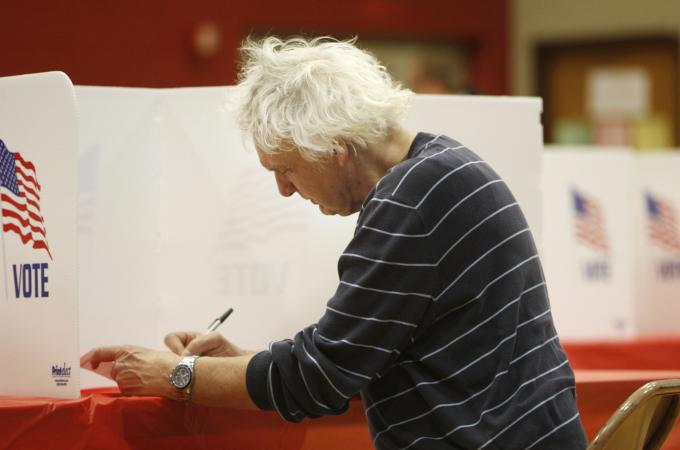Catholic Voters in 2020
A little more than a year and a half before the presidential election of 2020, the post-Mueller features of that contest are coming into focus along with some clues to its possible outcome. One conclusion to which the data point is that a relatively small body of voters, with Catholics very much among them, may be crucial to the outcome.
Above all, next year's voting will be a referendum on President Donald Trump. And here it appears that some basic numbers are already largely in place. Major changes are unlikely in the next 18 months, assuming (which of course can't be safely assumed) that neither the report by special counsel Robert Mueller nor much of anything else alters the views of voters whose minds are already made up.
To illustrate that, Washington Post columnist Charles Lane points out that as of April 1, 2017, Trump's approval rating stood at 41.5% with 52.5% disapproving. Then came two years that featured a tidal wave of events -- the firing of FBI Director James Comey, the Senate hearings on Supreme Court nominee (now justice) Brett Kavanaugh, a 35-day shutdown of major portions of the federal government, and much else.
And after all that, as of April 1 this year, Trump's approval rating stood at 42.3%, with 52.8% disapproving. Practically speaking, that is to say, there had been no change.
From this, Lane drew the conclusion-- open to challenge in light of the Mueller report, to be sure, but reasonable just the same -- that "Americans have made up their minds about Trump, and nothing between now and Election Day -- not actual events, and certainly not the spin that his political opponents put on those events -- is likely to change that."
But will Mueller's handiwork be a game changer? In fact, it will be a while before we know. Pending that, it appears that the result in November 2020 will depend on which party does the better job turning out its base. For Democrats, it also means extending the party's 2016 edge in the popular vote into battleground states like Florida, Michigan, Pennsylvania, and Wisconsin, while avoiding scaring off moderate voters by swinging left to please activists in the primaries. For Trump, it means holding on especially to evangelical Protestants, something he seems likely to do, considering that his approval rating among members of that group stood at nearly seven in ten early this year.
Catholic voters are harder to read. Exit polls back to 2004 show a majority not only supporting the winners of presidential elections but usually doing that by nearly the same margin as the electorate as a whole. The 2016 election was a slight exception, with Catholics again backing the winner, Trump, but giving him a larger share of their votes than the total body of voters (52% as against 46.1%).
Among white non-Hispanic Catholics, moreover, six out of ten voted for Trump. Whether that group stands with him next year may well determine the outcome of the election.
That in turn may help explain why Trump and Vice President Mike Pence have placed so much emphasis lately on condemning proposals allowing late-term abortion -- embraced by the Democratic governor of New York and adopted there, similarly embraced by the Democratic governor of Virginia but set aside in that state. Whoever the Democrats choose to represent them in 2020, the candidate will have to decide whether it would be smart to go into another close presidential election with that particular albatross around his or her neck.
- Russell Shaw is the author of more than twenty books. He is a consultor of the Pontifical Council for Social Communications and served as communications director for the U.S. Bishops.



















